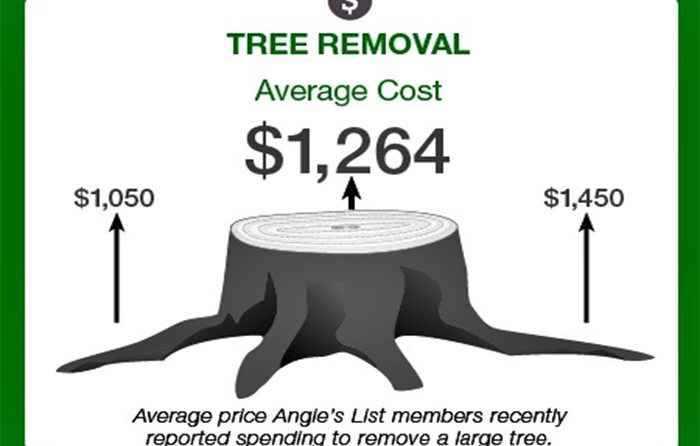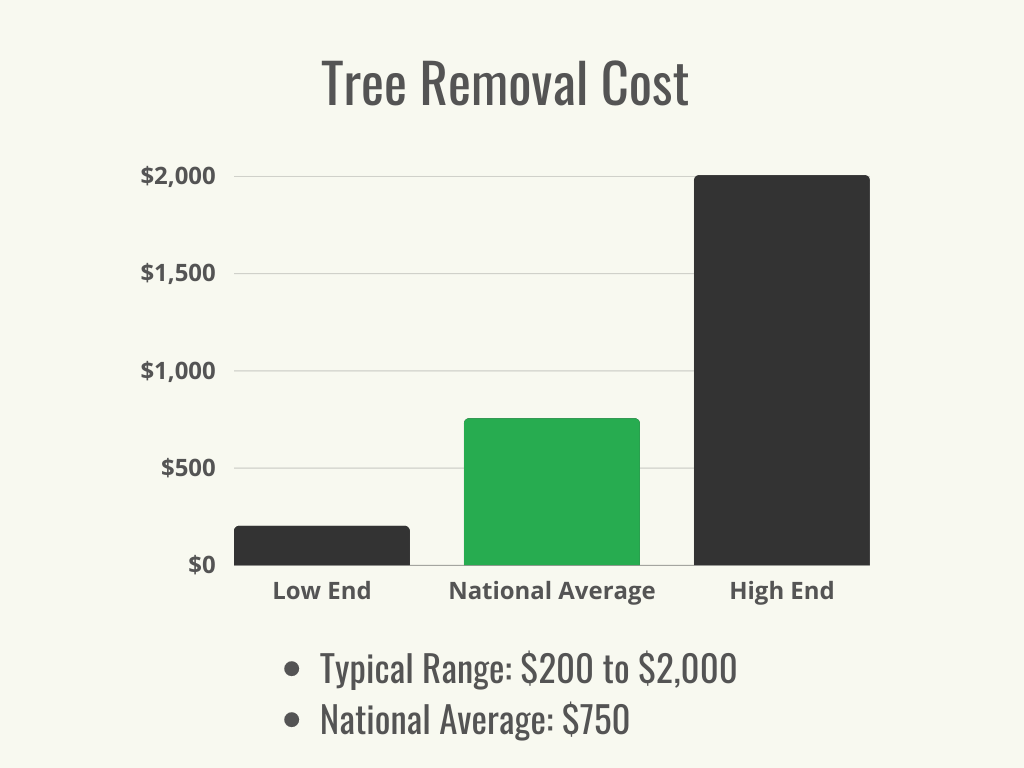Featured
Table of Contents
- – Seasonal Stump Removal Pricing In Park Forest,...
- – What To Expect To Pay For An Stump Removal In ...
- – Avoiding Overpaying For A Tree Cutting In Par...
- – Park Forest, IL Stump Grinding Market Rates
- – Compare Arborist Costs In Park Forest, IL
- – What You Get In An Tree Clearing Price In Par...
- – Finding Affordable Tree Cutting In Park Fores...
- – Park Forest, IL Tree Trimming: Common Pricin...
- – Additional Tree Service Warranty Costs In Pa...
- – Park Forest, IL Tree Removal Cost Estimator
- – Top Stump Removal Reviews In Park Forest, IL
- – Park Forest, IL Tree Clearing Costs: Complet...
- – Upfront Tree Cutting Costs In Park Forest, I...
- – Park Forest, IL Arborist Referral Discounts
- – Park Forest, IL Stump Grinding Quote Compari...

The subsections listed below offer more in-depth information about rates, consisting of an average variety for each. TypeAverage Removal CostPineConiferPalmMagnoliaArborvitaeAshCedarSweet GumEucalyptusSycamoreCypressOakMaplePoplar You can anticipate to pay between to get rid of a pine, depending on its size. Eliminating a pine is among the more budget-friendly tasks unless it is one that has actually been around for years and is quite big.
Seasonal Stump Removal Pricing In Park Forest, IL
Pines likewise have a tap root that grows deep into the soil, which can prove to be harder to get rid of. The process itself involves an expert cutting the tree, clearing the base, cutting the surface roots, eliminating the stump, and finally treating the soil. Without a professional hand, you run the risk of leaving pine seedlings behind, which will fall from the roots of distressed pines.
What To Expect To Pay For An Stump Removal In Park Forest, IL
The U.S. national average for conifer removal is roughly to have the conifer reduced, transported away, and the stump ground or gotten rid of entirely. Conifers are usually much easier to eliminate, and even though they can grow rather tall, they do not cost a fortune to remove. Conifers consist of pine, spruce, fir, and juniper trees.
Avoiding Overpaying For A Tree Cutting In Park Forest, IL
While conifers are lovely, they kill native plants and certain types of lawn (stump grinding). The average price of palm removal depends on the height as much as the type, varying from.
Park Forest, IL Stump Grinding Market Rates
That is why it is very important to understand which type you are removing. While you do not require an herbicide to kill a palm tree, there are some steps your elimination expert will have to take to ensure the job is done correctly. There are 2 ways they can get rid of them: by chopping them down or digging them up.
Compare Arborist Costs In Park Forest, IL
This is due to the fact that little animals like rats and scorpions frequently reside in them. Plus, numerous types will have spikes, too. From there, they remove the actual tree and after that the stump. Anticipate to pay in between to remove this type of tree, depending on the precise size and information of the job.
What You Get In An Tree Clearing Price In Park Forest, IL
There are 3 types: green, white, and black ash. White ash is known for its lots of colors. With its gray-tinged bark, its leaves are green or purple in the spring and golden yellow or purplish-red in the fall. They take pleasure in moderate environments and lots of sun. The green ash is named such due to its green or yellow foliage.
Finding Affordable Tree Cutting In Park Forest, IL

Due to the variation in height, the elimination cost variance is large from. A coniferous, evergreen tree, the cedar is a durable types.
Park Forest, IL Tree Trimming: Common Pricing Mistakes
The growth of false cedars differs from 50 feet approximately 230 feet high. Homeowners may pay anywhere from, depending on the roots. With star-shaped leaves and spectacular fall colors, the sweet gum is thought about a medium to big tree. Taking pleasure in complete sun, the sweet gum can not tolerate pollution.
Additional Tree Service Warranty Costs In Park Forest, IL
Generally, it costs between to eliminate a eucalyptus. Eucalyptus are not common everywhere, but they are rather big compared to others, which is why even the smaller ones are so expensive to eliminate.
Park Forest, IL Tree Removal Cost Estimator
There are a handful of ways to do this, including burning, pulling, grinding, or eliminating them with herbicide. Anticipate to pay between to get rid of sycamores, based upon the height, trunk size, and amount of work involved. Sycamores are among the biggest hardwood trees, usually varying from 60 to 100 feet tall and as wide as 15 feet.
Top Stump Removal Reviews In Park Forest, IL
The first 2 steps will expose the withins of the tree and cut off the flow of nutrients up the trunk. From there, an expert uses herbicide to eliminate the tree and cuts down the trunk.
Park Forest, IL Tree Clearing Costs: Complete Guide
There are various kinds of Cypress trees, but the most prevalent are the Leyland, Arizona, Bald, and Italian. The Bald Cypress grows in swampy or really damp areas while the others enjoy a dry, warm, or hot climate (arborist). They can grow as tall as 80 to 100 feet high
Upfront Tree Cutting Costs In Park Forest, IL: No Hidden Fees

Prone to illness, the Cypress is one of the most valued woods for furniture. The average oak grows to around 60 feet, and depending upon the intricacy of the removal, it costs approximately to eliminate. The exact size of your oak and the effort needed to fell it impact what you will actually spend for elimination along with any extra services like stump grinding.
Park Forest, IL Arborist Referral Discounts
Access to the trees and the roots will likewise impact the general expense. Maples are usually among the more pricey trees to get rid of due to the fact that of their size and the work involved in the elimination.
Park Forest, IL Stump Grinding Quote Comparison Tool
Poplars are giants of the species. Growing as high as 90 to 115 feet, these huge woods are primarily found in North America and consist of the aspen, cottonwood, and balsam trees. Boasting an extensive root system, poplars can be costly to remove when completely grown. The process to eliminate trees involves all the trimming and cutting of the branches and trunk, bringing it down to a stump.
Table of Contents
- – Seasonal Stump Removal Pricing In Park Forest,...
- – What To Expect To Pay For An Stump Removal In ...
- – Avoiding Overpaying For A Tree Cutting In Par...
- – Park Forest, IL Stump Grinding Market Rates
- – Compare Arborist Costs In Park Forest, IL
- – What You Get In An Tree Clearing Price In Par...
- – Finding Affordable Tree Cutting In Park Fores...
- – Park Forest, IL Tree Trimming: Common Pricin...
- – Additional Tree Service Warranty Costs In Pa...
- – Park Forest, IL Tree Removal Cost Estimator
- – Top Stump Removal Reviews In Park Forest, IL
- – Park Forest, IL Tree Clearing Costs: Complet...
- – Upfront Tree Cutting Costs In Park Forest, I...
- – Park Forest, IL Arborist Referral Discounts
- – Park Forest, IL Stump Grinding Quote Compari...
Latest Posts
Premium Tree Cutting Packages In Ionia, MI: Pricing
Understanding Stump Removal Costs In Gresham, OR
Asheville, NC Arborist: Price Range
More
Latest Posts
Premium Tree Cutting Packages In Ionia, MI: Pricing
Understanding Stump Removal Costs In Gresham, OR
Asheville, NC Arborist: Price Range